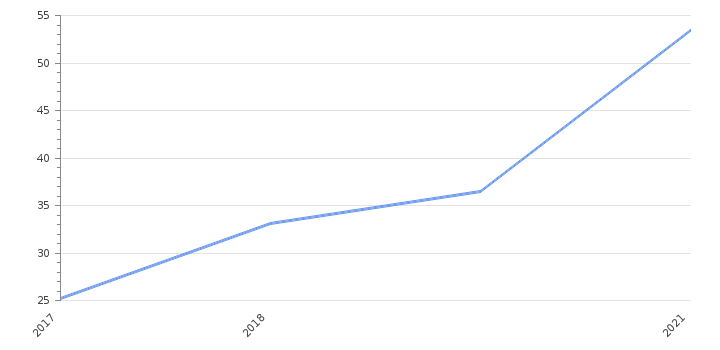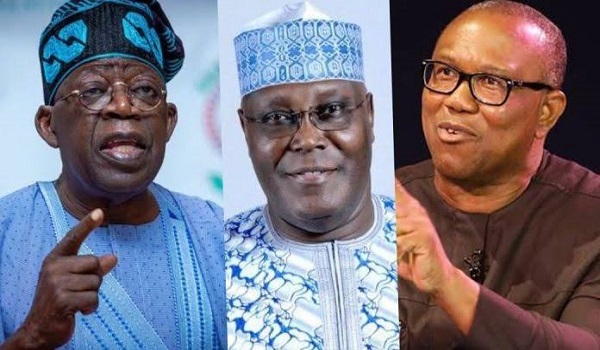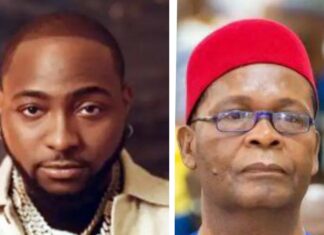
By Ishaya Ibrahim, News Editor
The Peoples Democratic Party (PDP) presidential candidate, Atiku Abubakar, says his focus would be a private sector-driven economy with strong government regulation.
The Labour Party standard-bearer, Peter Obi, says he is keen on taking Nigeria away from a consumption-based economy to production with the private sector leading.
The All Progressives Congress (APC) flag-bearer, Bola Tinubu, uses Lagos, the seventh economy in Africa, to show his capability of putting Nigeria on the pedestal of global economic power. His economic focus would have the private sector and the government actively competing.
Obi
The 61-year-old Obi is the youngest of the frontrunners. Atiku is 76, Tinubu is 70 and Kwankwaso, 66.
His economic plans are captured in a 62-page manifesto titled ‘Our Pact With Nigerians: Creating A New Nigeria.’
He proposes to run a cost-effective, transformative, and less transactional government where sharing of the national wealth by a few would be a thing of the past. “We no dey give shishi,” his supporters who go with the moniker Obidients, would proudly say.
The underpinning of Obi’s economic plan is hinged on the assumption that the current system is riddled with corruption and waste, and once those vices are removed, the economy will rebound. Obi buttressed this point in October last year during the Private Sector Economic Forum on the 2023 presidential election held at the Lagos Chamber of Commerce and Industry (LCCI) where he said the Nigerian economy is crippled by the trio of oil theft, fuel subsidy fraud and general wastage.
READ ALSO
How I will rescue Nigeria’s economy – Peter Obi
He said he has the willingness to end oil theft, a commodity that he believes is being stolen with the active connivance of senior people in government. And that once the oil theft is taken care of, Nigeria’s liquidity challenge would be resolved.
The former Anambra Governor also said he would trim the exclusive legislative list if elected president, with some key areas like agriculture and education going to the states and local government.
There are 68 items on the exclusive list, which means only the federal government has jurisdiction over those matters, including registration of businesses, industrial relations, maritime, copyright and so on. Obi promises to review this list and offload some of the items to the states and local governments.
Obi also believes that some Nigerian assets would be better off with the private sector.
On stabilising the exchange rate, Obi said he would prohibit the spending of dollars in Nigeria. He said Airlines would not be allowed to sell tickets to Nigerians in dollars, and those in the breach would have their operating licenses revoked.
He also said there will be no duty waiver under his watch to favoured business owners. He said if such would be given, it must be for critical imports like health equipment which would be strictly for public hospitals.
On fuel subsidy, Obi said it is an organised crime. He said half of what is termed subsidy is basically corruption. He said fuel subsidies would be removed and local refiners empowered to produce refined oil for local consumption. According to Obi, crude would be sold to the local refiners in Naira and not dollars.
And because security is the kick starter for any economic progress, Obi proposes multi-layer policing, which would require the federal, state and local governments to own their security structures.
Atiku
Atiku comes into the presidential race with what he termed a ‘Recovery Plan,’ which implies that he wants to restore what the APC has eroded in the eight years it has been in government.
Atiku has proposed a number of measures, including tax waivers and other incentives to the private sector as a pathway to stimulating growth in Nigeria’s economy.
Atiku says he hopes to take Nigeria’s Gross Domestic Product to nearly $1 trillion by 2030. He said this can be achieved through the reduction of the government’s influence on the economy and the promotion of private-sector-led development. Nigeria’s GDP currently stands at $440.78 billion.
Atiku says he is open to giving tax concessions for sectors of the economy that create jobs or invest in critical sectors like rail lines.
READ ALSO
Atiku’s talisman on fixing Nigeria’s economy
On the exchange rate, Atiku says under his watch, while the Central Bank of Nigeria (CBN) would be allowed the independence to pursue its mandate of regulation, such must not be at the expense of discouraging capital inflows. Simply put, Atiku proposes a single exchange window for all players in the economy.
On electricity, the PDP presidential candidate said an emergency will be declared in the sector. Atiku says he would propose legislation to remove the entire electricity value chain from the exclusive list and give states the power to generate, transmit and distribute electricity for themselves.
Atiku says he will reduce poverty by creating an economic stimulus fund within the first 100 days in office of about $10 billion to support MSMEs across all the economic sectors because they offer the greatest economic opportunities to achieve economic growth.
The PDP presidential candidate says if elected, his government would stop supporting ailing state-owned enterprises like NTA and the like. He has as a priority, the plan to sell off all four refineries in the country, and then use the proceeds to fund his $10 billion MSME intervention.
He envisages that in the medium term, he would run a government where recurrent expenditures should not exceed 45% of the budget.
Like Obi, Atiku also proposes an end to the regime of fuel subsidies and then uses the money for critical sectors of education and health.
Tinubu
Tinubu is running on the record of his achievements as Governor of Lagos State between 1999 and 2017, and the record of the APC government since 2015.
As a former Lagos governor, Tinubu claimed to have modernized the city, increased its Internally Generated Revenue from about N600 million to about N50 billion and put the city among the 7th-ranked economies in Africa.
Tinubu, in his 80-page Manifesto, says he would continue on Buhari’s programmes of funding infrastructure, supporting farmers and helping economically vulnerable citizens through social welfare interventions.
READ ALSO
Like Atiku and Obi, Tinubu says he would end petrol subsidy and deploy the proceeds to areas including transportation subsidy, health and education.
Tinubu says he would focus on jobs through public works program, a significant and heavy investment in infrastructure, and value-adding manufacturing and agriculture.
Tinubu says his administration will target an electricity distribution goal of 15,000 megawatts across the country and ensure a sustainable 24/7 supply.













